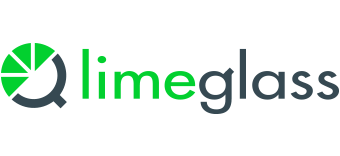Automated Pre-Publication Document Tagging for Enhanced Research Distribution
- Problem Solved: Inability to tag the main Themes of a document at scale. Only current solutions require error-prone manual tagging.
- Client Benefits: Ability to distribute research in Thematic categories and to create tailored thematic content.
- Pre-Publication: Limeglass Prism automatically tags your documents before they have been published, ensuring seamless progress to distribution.
- Document Level Tags: Surface relevant tags from the content of your document and give your analyst the power to select or deselect them.
- Ingestion & Atomisation
- Pre-Publication
- Automatic Tagging
- Document Level Tags
- Output
- Heatmap
- Client Type
- Research Operations
- Where does the Client use it?
- Distribution System
The New Gold Standard in Research Distribution.
Your distribution system needs upgrading
You could produce the best research in the world and yet it could go entirely unread without a first-class distribution system. Your clients on the Buy Side may occasionally ask you directly if you have written about something they want to investigate, but, in most cases, they will only read what they have seen enter their inbox.
Clients are still drowning in a flood of research reports
Most Sell Side Research operations now have a system that automatically tags and distributes documents but only does so with a fairly modest level of sophistication. Clients can choose whether or not to receive a particular analyst’s research, or they can consume content from a selection of sectors, regions, and asset classes. But they are still experiencing a high degree of information overload and are currently unable to filter their preferences using meaningful criteria based on the actual content of the reports.
As an industry, we all need to find ways to help clients reduce the volume of received reports further, without the risk of them missing out on valuable insights.
Thematic distribution solves the problem
So, what is a first-class distribution system? One that allows clients not only to filter their consumption preferences by analyst name, sector, or region, but also by an intelligent understanding of the contents of the reports: by subject matter and themes.
We have written before [insert link to Ontology article] about the ESG-focussed client who must currently subscribe to all reports from the Automobile sector when, in reality, all they need is the subset of reports about Electric Vehicles. The same could be true for an FX trader who is interested in how major European corporations are hedging their Dollar exposure, but otherwise has no need for stock reports on Bayer or Airbus.
Smart Tag It!
The distribution system required to make this possible is one that includes an intelligent auto-tagging capability during the publishing process.
Limeglass PrismAPI does exactly this. Using Rich NLP and a large, ever-growing taxonomy of financial terms, Analysts can finish writing their document, enable the tagging system, and receive back suggested tags based on the content of the document.
Publishing Analysts can still control their document tags
In our earlier example, the analyst who covers Airbus will be given the option to include a “EUR/USD” tag in the official metadata of their document which indicates that they have written some content about euro/dollar. Naturally, they will also be given other more obvious tags related to the company, like “European Aerospace”.
Many clients will already be subscribed to research of “European Aerospace” and will continue to receive this report through that channel. But the FX trader client can now subscribe to “EUR/USD” and receive this report too.
The inference of this across all sectors, asset classes, and types of research is huge. Suddenly, clients can use a wide array of previously non-existent distribution channels to receive only the research that they need.
Limeglass Prism ensures compliant handling of pre-published information
Of course, given that this process happens to the research report before it is officially published and disseminated means that the report is still Material Non Public Information (MNPI) at this stage. The data, therefore, cannot be stored or be accessible by anyone other than the analyst and relevant compliance / Research management teams.
Limeglass ensures this by keeping the data encrypted in transit and everything performed in-process and in-memory, leaving nothing stored in persistent media, and keeping documents inaccessible to Limeglass staff (or anyone else).
And Thematic Distribution is just the start…
Of course, once you have this pre-publication thematic tagging system set up, the sky is the limit for further use cases.
Go to the Use Case menu for an overview or click Next to see what else your new tagging system will give you.


